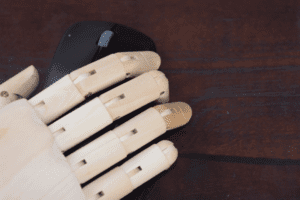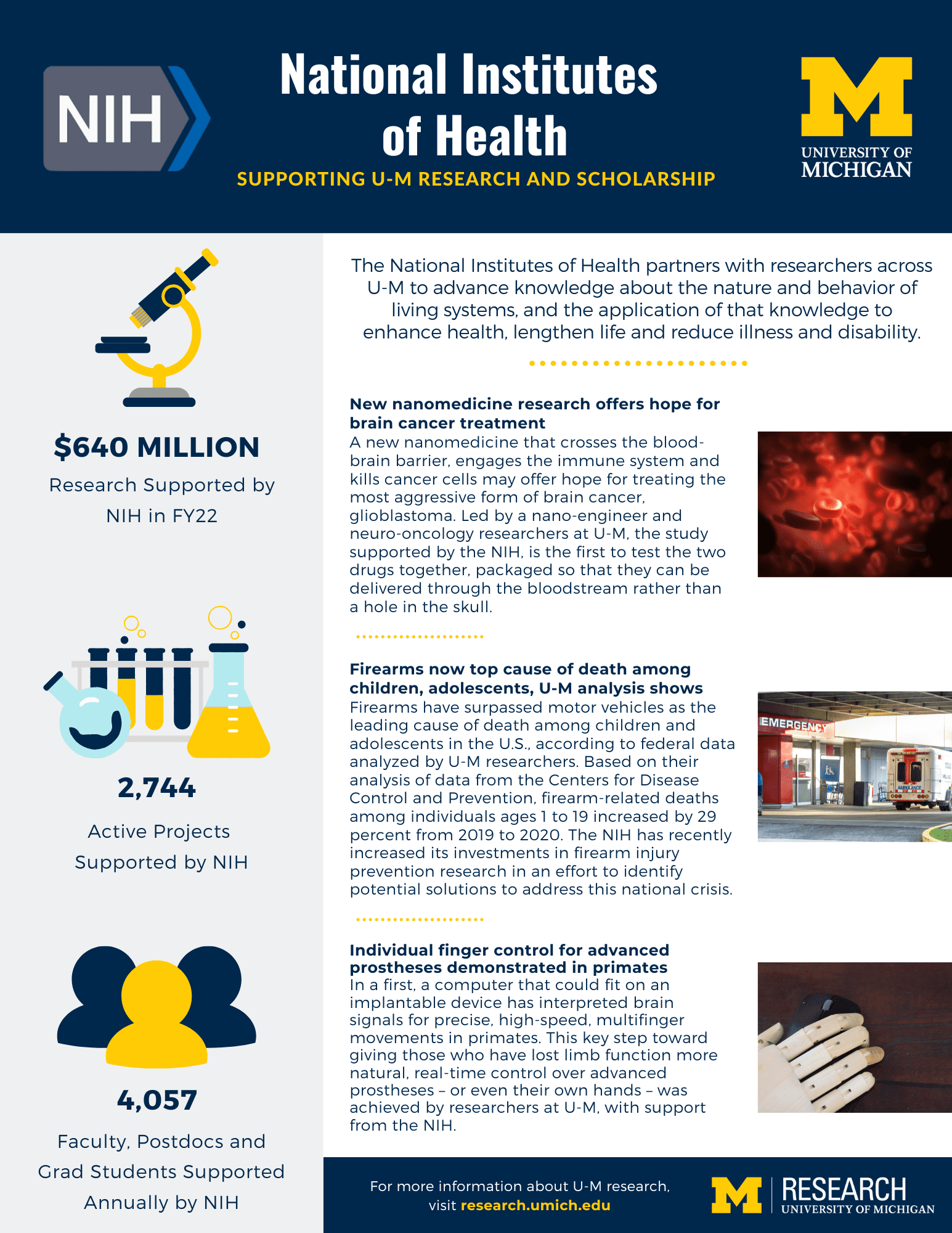National Institutes of Health
The National Institutes of Health partners with researchers across U-M to advance knowledge about the nature and behavior of living systems, and the application of that knowledge to enhance health, lengthen life and reduce illness and disability.



$640 MILLION
Research Supported by NIH in FY22

2,744
Active Projects Supported by NIH

4,057
Faculty, Postdocs and Grad Students Supported Annually by NIH
New nanomedicine research offers hope for brain cancer treatment
 A new nanomedicine that crosses the blood-brain barrier, engages the immune system and kills cancer cells may offer hope for treating the most aggressive form of brain cancer, glioblastoma. Led by a nano-engineer and neuro-oncology researchers at U-M, the study supported by the NIH, is the first to test the two drugs together, packaged so that they can be delivered through the bloodstream rather than a hole in the skull.
A new nanomedicine that crosses the blood-brain barrier, engages the immune system and kills cancer cells may offer hope for treating the most aggressive form of brain cancer, glioblastoma. Led by a nano-engineer and neuro-oncology researchers at U-M, the study supported by the NIH, is the first to test the two drugs together, packaged so that they can be delivered through the bloodstream rather than a hole in the skull.
Firearms now top cause of death among children, adolescents, U-M analysis shows
 Firearms have surpassed motor vehicles as the leading cause of death among children and adolescents in the U.S., according to federal data analyzed by U-M researchers. Based on their analysis of data from the Centers for Disease Control and Prevention, firearm-related deaths among individuals ages 1 to 19 increased by 29 percent from 2019 to 2020. The NIH has recently increased its investments in firearm injury prevention research in an effort to identify potential solutions to address this national crisis.
Firearms have surpassed motor vehicles as the leading cause of death among children and adolescents in the U.S., according to federal data analyzed by U-M researchers. Based on their analysis of data from the Centers for Disease Control and Prevention, firearm-related deaths among individuals ages 1 to 19 increased by 29 percent from 2019 to 2020. The NIH has recently increased its investments in firearm injury prevention research in an effort to identify potential solutions to address this national crisis.
Individual finger control for advanced prostheses demonstrated in primates
 In a first, a computer that could fit on an implantable device has interpreted brain signals for precise, high-speed, multifinger movements in primates. This key step toward giving those who have lost limb function more natural, real-time control over advanced prostheses – or even their own hands – was achieved by researchers at U-M, with support from the NIH.
In a first, a computer that could fit on an implantable device has interpreted brain signals for precise, high-speed, multifinger movements in primates. This key step toward giving those who have lost limb function more natural, real-time control over advanced prostheses – or even their own hands – was achieved by researchers at U-M, with support from the NIH.

